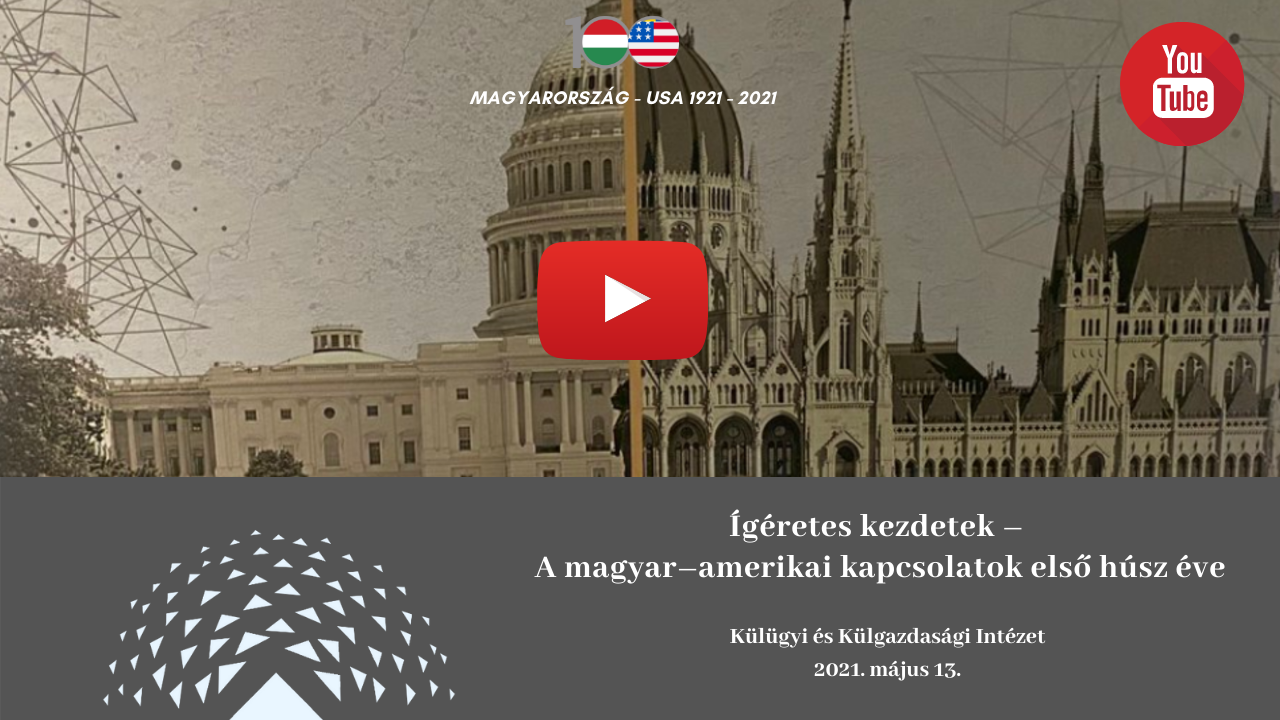The Institute for Foreign Affairs and Trade (IFAT) held an online roundtable discusson on May 13, 2021 under the title A Promising Start – The First 20 Years of Hungarian–American relations. Invited speakers were Tibor Glant, professor of the University of Debrecen and Gergely Romsics, senior fellow at ELKH BTK Institute of History. The event was moderated by Tamás Baranyi, Deputy Director of IFAT.
In his opening lecture, The U.S. and Hungary in the Twenties, Mr. Glant explained the broader context of bilateral relations, and the role of the U.S. in the postwar post-Habsburg space.
Gergely Romsics’s lecture, Hungarian Public Diplomacy in the U.S., 1919–1924, talked about how Hungarian policy-makers first entertained illusions about a possible American support for revisionism, but later set the aim for the fiscal stabilization of the post-Trianon country. For this, credit was needed, and this could have only been secured in the U.S. as no European power was willing to give. To reach such an understanding with the financial elite of the U.S. was a primary goal of Hungarian public diplomacy, facilitated by the restoration of relations, the work of the first ambassador Mr. László Széchenyi, as well as the bridgebuilding activities of the Hungarian aristocracy.
In the later discussion, the Americanization of European and Hungarian culture, the perception of the U.S. in Hungary, and the American stake at the stabilization of the region were discussed.
The full recording can accessed at the link below or on our YouTube-channel!
JTNDaWZyYW1lJTIwd2lkdGglM0QlMjIxMDAlMjUlMjIlMjBoZWlnaHQlM0QlMjI0NTAlMjIlMjBzcmMlM0QlMjJodHRwcyUzQSUyRiUyRnd3dy55b3V0dWJlLmNvbSUyRmVtYmVkJTJGRmt5N1RFb2ppM0klMjIlMjB0aXRsZSUzRCUyMllvdVR1YmUlMjB2aWRlbyUyMHBsYXllciUyMiUyMGZyYW1lYm9yZGVyJTNEJTIyMCUyMiUyMGFsbG93JTNEJTIyYWNjZWxlcm9tZXRlciUzQiUyMGF1dG9wbGF5JTNCJTIwY2xpcGJvYXJkLXdyaXRlJTNCJTIwZW5jcnlwdGVkLW1lZGlhJTNCJTIwZ3lyb3Njb3BlJTNCJTIwcGljdHVyZS1pbi1waWN0dXJlJTIyJTIwYWxsb3dmdWxsc2NyZWVuJTNFJTNDJTJGaWZyYW1lJTNF

